Do I Have Neuropathy?
We usually don’t know we have neuropathy because we can’t “feel” the loss of sensation. Neuropathy may cause pain, numbness, tingling, burning or cramping. If your body loses sensation your brain does not get stimulated and will not send blood to the areas of sensation loss causing cold hands and feet.
What Causes Neuropathy?
- Nerve Compression – also known as “pinched nerve”.
- Vitamin deficiency – healthy nerve conduction depends on B vitamins and oils.
- Oxygen deficiency – energy production and nerve function are dependent on oxygen. We can become oxygen deficient and not generate enough oxygen for healthy nerve function.
- Lack of activation – nerves are stimulation dependent. If a nerve is not routinely stimulated, that respective area of the brain degenerates and neuropathy occurs. Stimulation to the nerves helps regenerate the pathway to the brain.
- Diabetes – prolonged high blood sugar levels damage nerves and causes neuropathy.
- Lifestyle – bad habits such as smoking and excessive alcohol intake damages nerves causes neuropathy.
What is Peripheral Neuropathy?
Peripheral neuropathy is a degenerative nerve disease of the extremities due to poor nerve health, causing loss of sensation, pain, numbness, cramping or burning in feet or hands. It can be from a metabolic disorder, such as diabetes, or from nerve compression or demyelinating disease.
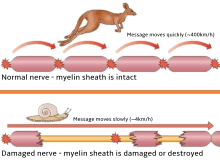
What is Stenosis and How Does it Affect Neuropathy?
Stenosis is the closing of a hole – usually due to arthritic calcium deposits causing nerve compression and peripheral neuropathy. Spinal and foraminal stenosis can cause neuropathy or “pinched nerve”.
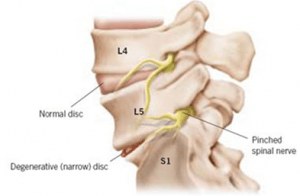
Spinal stenosis occurs when arthritic bone formation or disc herniation creates pressure on the spinal cord leading to symptoms usually seen on both sides.
Foraminal stenosis occurs when arthritis. disc herniation or degeneration creates pressure on the nerve as it leaves the spinal cord causing symptoms on only one side.
Stenosis may also occur in the extremities causing Carpal Tunnel Syndrome.
How is Neuropathy Effecting Your Life?
Peripheral neuropathy increases your risk of arthritis and leads to degenerative disorders, pain, difficulty walking and bending, poor balance, cramping, restless legs, and an increased risk of falling. Neuropathy is the number one reason seniors falls and complications from falls are the leading killer in the elderly.
How is Peripheral Neuropathy Treated?
Factors needed for healthy nerve function:
- Oxygen
- Balanced blood sugar
- Nerve activation
- Nutrient balance
Large Diameter Afferents – the nerves that carry sensory input to your brain from your hands and feet block pain and need to be rebuilt for pain relief.
Small Diameter Afferents – the nerves that carry pain to the brain which are stimulated with neuropathy and are blocked by long diameter afferent stimulation.
Nerve Regeneration – our state-of-the-art nerve stimulation rebuilds Large Diameter Afferents to block pain, improves your balance, reduces the risk of falling, and combats peripheral neuropathy.
Decompression – spinal decompression relieves pain from arthritis and degenerative disc disease reducing neuropathy.
Supplements – nutrients are required to regenerate nerve function and promote blood flow to the extremities alleviating peripheral neuropathy.
Home Therapies – are required to keep your improvements made with each office visit. Successful long term outcomes are highly dependent on continually doing at-home therapies to keep peripheral nerves stimulated. The Hako-Med Regenerator is available here at Davis Family Chiropractic for home use to maximize healing effectiveness.
Metabolic – nerve damage can be from poor diet and high dietary intake of sugar and unhealthy food. For more information on our dietary program check out AHSNaturalFIt.com.
What are the Clinical Expectations?
Depending on the severity of your neuropathy and the length of time you’ve had symptoms, improvements can usually be seen around 24 treatments. Neuropathy treatment usually takes roughly an hour or less and is done two to three times per week for two to three months. Improvements in sensation, temperature, balance, walking, and brain function are expected. Decrease in pain, burning, numbness, tingling, and cramping will be experienced.
Testimonials
“Since 2015 I have had back pain and pain in both knees. I was treated by orthopedic doctors, but was given only pain medication. The treatments I have received at Davis Family Chiropractic. both manipulations, neuropathy therapy, and decompression therapy, have helped me with pain, but have also allowed me to become more flexible and able to walk and get in and out of bed. I would encourage you to seek their advice and care.” – Barbara W. (Age 79)

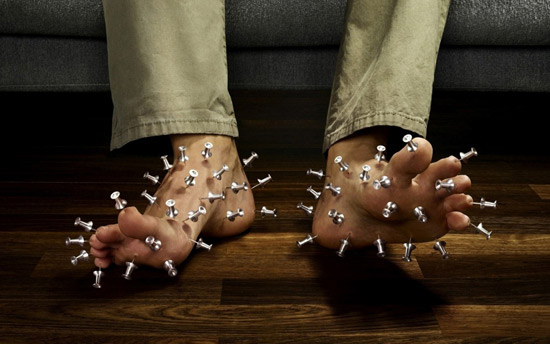
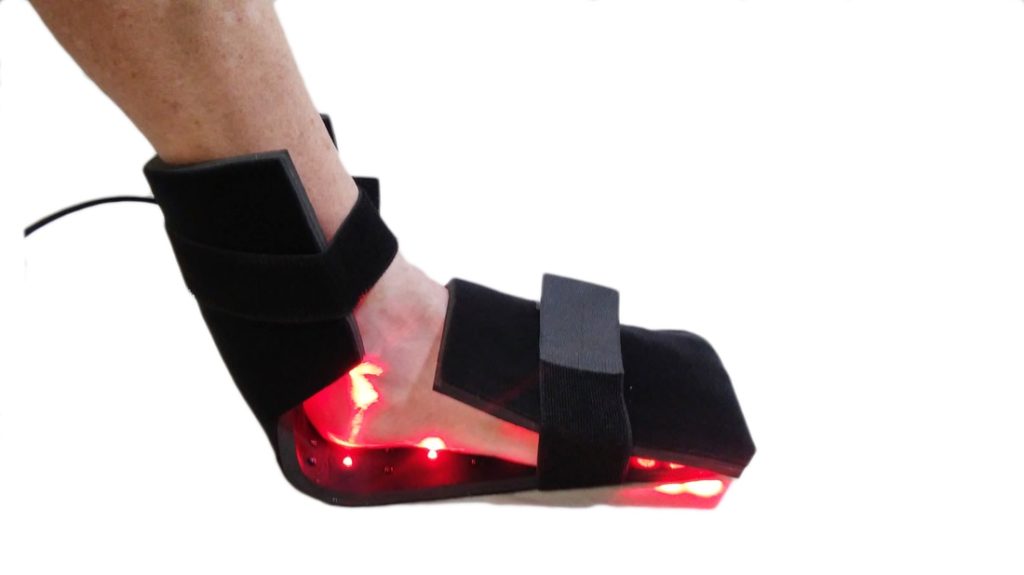
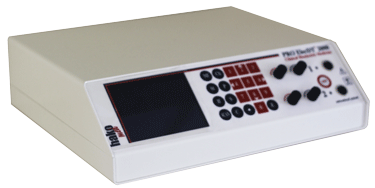
Thank you for explaining in your post what peripheral neuropathy is. We are looking for a podiatrist for my father, who has arthritis. Someone mentioned it is an excellent way to make him relax and ease some pain in his nerve.